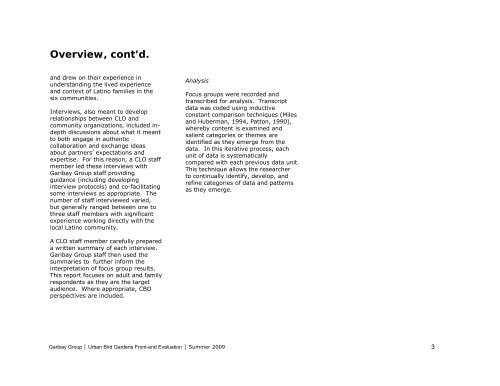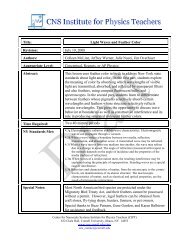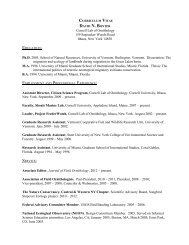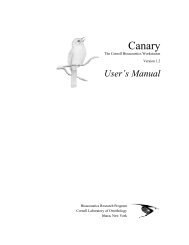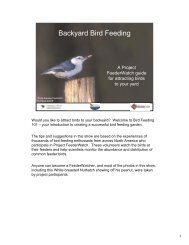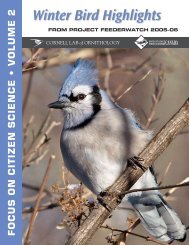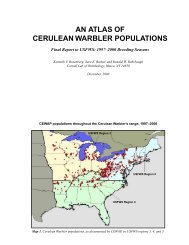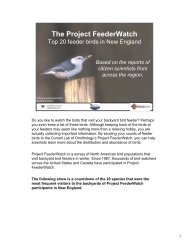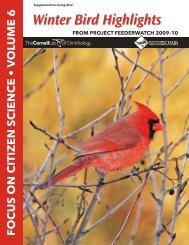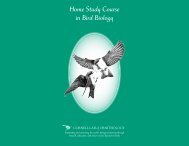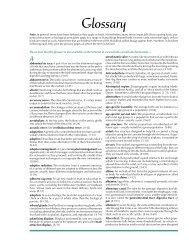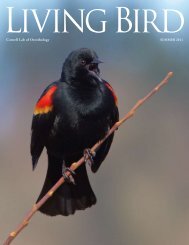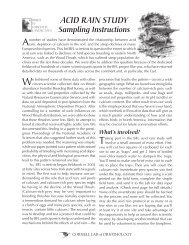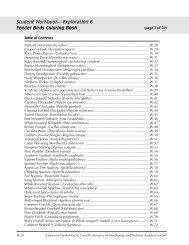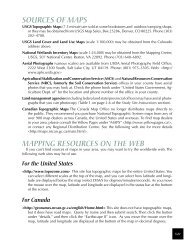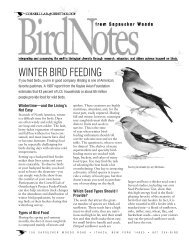Urban Bird Gardens Final Report - Cornell Lab of Ornithology ...
Urban Bird Gardens Final Report - Cornell Lab of Ornithology ...
Urban Bird Gardens Final Report - Cornell Lab of Ornithology ...
You also want an ePaper? Increase the reach of your titles
YUMPU automatically turns print PDFs into web optimized ePapers that Google loves.
Overview, cont’d.<br />
and drew on their experience in<br />
understanding the lived experience<br />
and context <strong>of</strong> Latino families in the<br />
six communities.<br />
Interviews, also meant to develop<br />
relationships between CLO and<br />
community organizations, included indepth<br />
discussions about what it meant<br />
to both engage in authentic<br />
collaboration and exchange ideas<br />
about partners’ expectations and<br />
expertise. For this reason, a CLO staff<br />
member led these interviews with<br />
Garibay Group staff providing<br />
guidance (including developing<br />
interview protocols) and co-facilitating<br />
some interviews as appropriate. The<br />
number <strong>of</strong> staff interviewed varied,<br />
but generally ranged between one to<br />
three staff members with significant<br />
experience working directly with the<br />
local Latino community.<br />
A CLO staff member carefully prepared<br />
a written summary <strong>of</strong> each interview.<br />
Garibay Group staff then used the<br />
summaries to further inform the<br />
interpretation <strong>of</strong> focus group results.<br />
This report focuses on adult and family<br />
respondents as they are the target<br />
audience. Where appropriate, CBO<br />
perspectives are included.<br />
Analysis<br />
Focus groups were recorded and<br />
transcribed for analysis. Transcript<br />
data was coded using inductive<br />
constant comparison techniques (Miles<br />
and d HHuberman, b 1994 1994, Patton, P tt 1990), 1990)<br />
whereby content is examined and<br />
salient categories or themes are<br />
identified as they emerge from the<br />
data. In this iterative process, each<br />
unit <strong>of</strong> data is systematically<br />
compared with each previous data unit.<br />
This technique allows the researcher<br />
to continually identify, develop, and<br />
refine categories <strong>of</strong> data and patterns<br />
as they emerge.<br />
Garibay Group │ <strong>Urban</strong> <strong>Bird</strong> <strong>Gardens</strong> Front-end Evaluation │ Summer 2009 3


